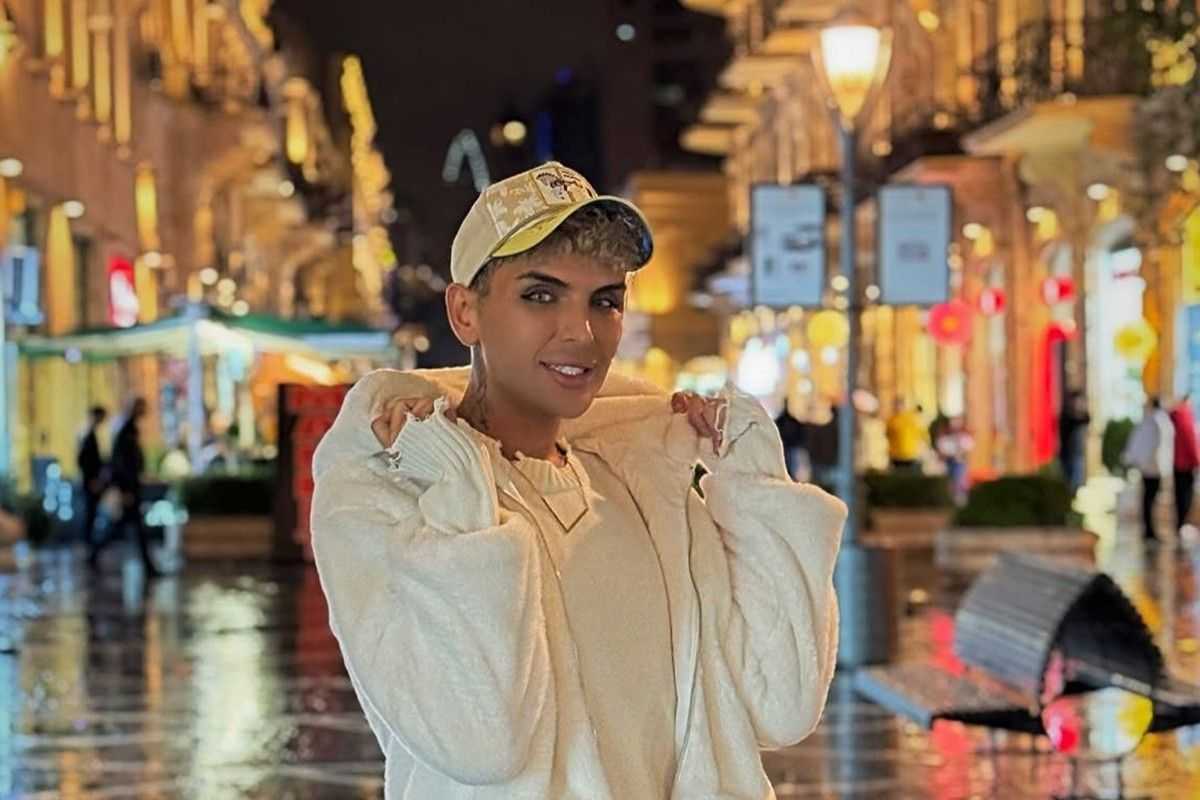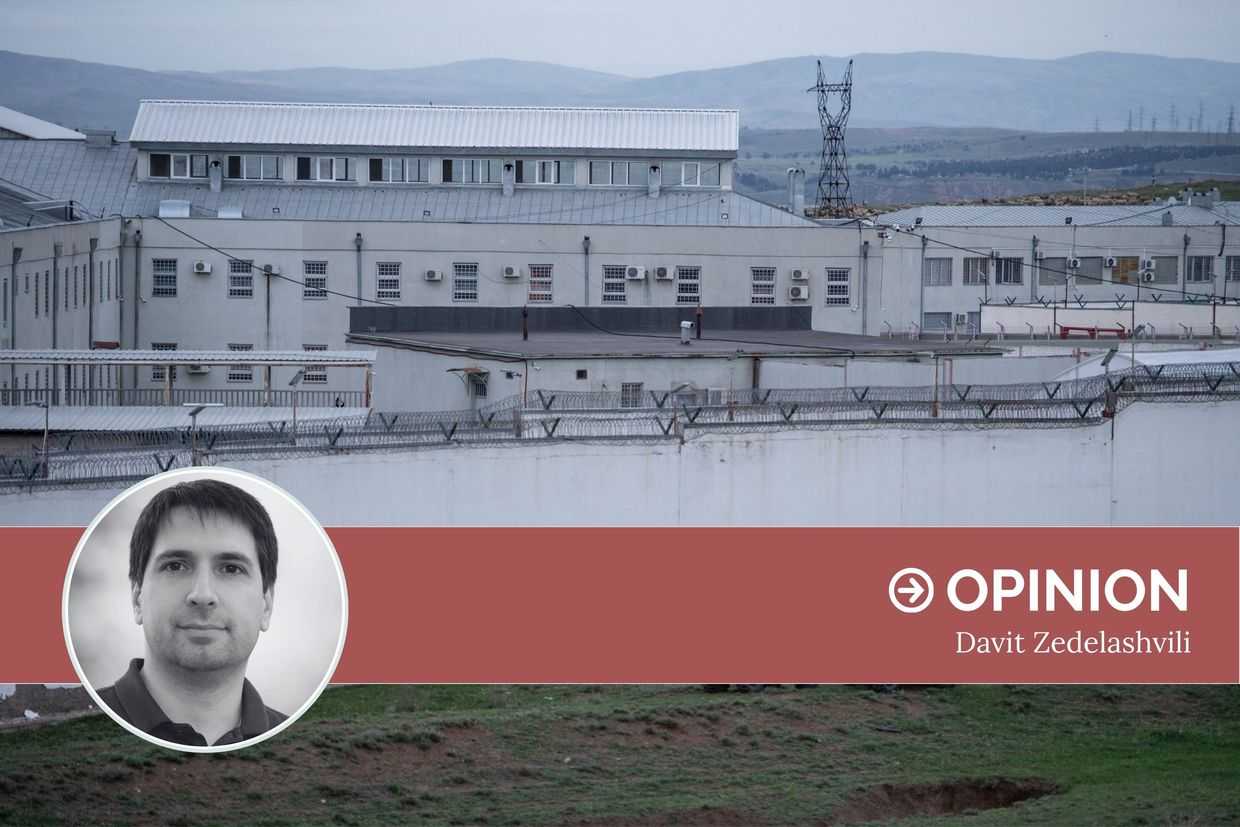
Police have arrested two opposition activists for insulting Prime Minister Irakli Gharibashvili, as the PM railed against queer ‘propaganda’ and the ‘treacherous’ opposition in his annual address to parliament.
Officers whisked away brothers Saba Papashvili and Beka Papashvili, members of the opposition United National Movement (UNM) party, from the rear entrance of the Parliament soon after a demonstration against the Prime Minister started.
Police moved in to make detentions immediately after protesters began playing a recorded voice saying ‘Irak’li’ (substituting the letter ‘კ’ for the letter ‘ყ’), a derogatory mispronunciation of the PM’s first name.
Police have repeatedly arrested protesters for holding posters with the same mispronunciation in recent weeks, in one case, even arresting a nearby activist who held a blank piece of paper.
[Listen on the Caucasus Digest: Podcast | Blank posters and phallic puns: how to get arrested in Georgia]
‘You’re traitor!, You, Russian!’, UNM’s Ana Tsitlidze hurled at Gharibashvili during his speech, as the PM went on lambasting critics, primarily focusing on her party and their record while in government.
Gharibashvili called the opposition spectrum Georgia’s ‘internal enemies’ seeking to destabilise the country and sabotage Georgia’s EU membership candidacy bid, which is expected to be reassessed by the EU later this year.
The PM also reprimanded opposition group Girchi — More Freedom, whose chair, Zurab Girchi Japaridze, was recently physically attacked on apparent political grounds. On the same day, a mob threw rocks, paint, and eggs at the hotel where Japaridze was expected to participate in a youth camp organised by the Tbilisi-based Institute for Individual Liberty.
To counter what he described as Girchi’s false patriotism, and camps where he alleged young people were indoctrinated into political violence, Gharibashvili vowed to introduce ‘military camps’.
‘We want to involve even more schoolchildren and students in military camps — not in your and Zura Girchi’s camps, the anti-national camps, but in real camps of our glorious army’, Gharibashvili stated.
The PM also floated the idea of legally curtailing what he called ‘LGBT propaganda’ in kindergartens and schools. His statement came a day before the opening of Pride Week, a series of events by queer advocacy group Tbilisi Pride. This year, activists have refrained from attempting a public march.
[Read on OC Media: Georgian Dream ramps up homophobic rhetoric as Pride Week approaches]
‘More government critics need to be beaten up’
On Friday, the lawmakers from the government-aligned European Socialists and Peoples Power parliamentary groups used a large part of their time designated to ask questions to the PM to mimic his rhetoric against opposition groups.
European Socialists’ leader Pridon Injia went as far as endorsing political violence, blaming recent such incidents on the absence of legislation banning offending ‘religious feelings’ and slander.
‘Recently, Mishveladze, Berdzenishvili, Japaridze, Kutelia were beaten up, and members of the parliament may join this list; and there are more that need to be beaten up’, Injia stated during the session.
[Read more on OC Media: Two government critics reportedly attacked in Georgia]
Later that day, the chair of Georgian Dream, Irakli Kobakhidze, blamed Misha Mshvildadze, the latest of a series of government critics to be attacked, for the violence.
‘The man who curses others’ mothers on each and every step gets a reaction. Above all, he should blame himself’, Kobakhidze said.
In his address to parliament, Gharibashvili also claimed that his government had to navigate turbulent changes in the ‘international order’, as well as the ‘real threat of nuclear weapons being used’.
‘In a situation like this, of course, the main concern of me […] and our government is to save the country’.
Soon after Russia invaded Ukraine, Gharibashvili’s Georgian Dream party have frequently claimed, without presenting evidence, that a cabal of international and local ‘enemies’ had sought to involve Georgia in war with Russia.
The UNM eventually walked out of the plenary session to brief the media that government supporters had disrupted a meeting of their party chair Levan Khabeishvili with the local residents in the central Georgian town of Kaspi.
Khabeishvili alleged later that those who confronted him were public employees mobilised by the government from the local and neighbouring municipalities. In Kaspi, some from the anti-UNM crowd pushed around and tried to obstruct Giorgi Akhalkatski, a journalist from TV channel Mtavari who was reporting live.









